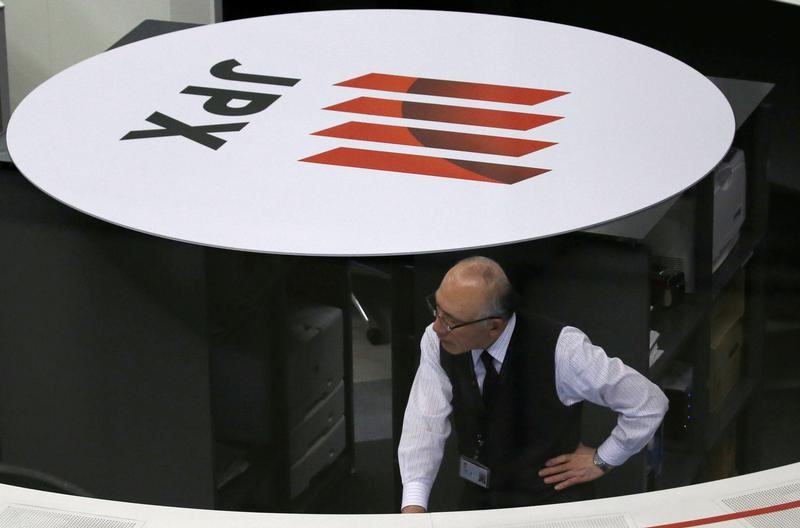U.S. Labor Department reports website issues ahead of jobs data release
SYDNEY, June 29 (Reuters) - Japanese shares sank on Monday,
tracking Wall Street's sharp retreat after several U.S. states
imposed business restrictions to tackle a resurgence in new
coronavirus cases.
The benchmark Nikkei average .N225 tumbled 2.3% to
21,995.04 points, its lowest close since June 15, with cyclical
stocks leading the decliners.
The Nikkei also fell below a major support level of its
25-day moving average, which was last at 22,356, for the first
time since April 7.
Wall Street's major indexes plunged on Friday as some U.S.
states reconsidered their reopening plans after the early
lifting of restrictions was followed by a resurgence in new
infections. .N Further denting investor sentiment, the Wall Street Journal
reported that the Phase 1 U.S.-China trade deal could be at
risk. "Even though equity prices (in Japan) have risen
significantly from the lows in March, we believe that a great
deal of risk aversion still exists for many (foreign)
investors," said Bill Maldonado, global chief investment officer
for equities at HSBC Global Asset Management.
The broader Topix .TOPX lost 1.8% to 1,549.22, also a
two-week low, with all of the 33 sector sub-indexes on the Tokyo
exchange finishing lower.
Highly cyclical iron and steel .ISTEL.T , mining .IMING.T
and air transport .IAIRL.T indexes were among the
worst-performers on the main bourse.
Tokyo-listed banks tracked U.S. counterparts lower, with
Mitsubishi UFJ Financial Group (MUFG) 8306.T and Sumitomo
Mitsui Financial Group (SMFG) 8316.T falling 2.3% and 2.0%,
respectively.
Elsewhere, shares of the Nikkei's heavyweight SoftBank Group
9984.T shed 2.8%.
The tech conglomerate said it expects a gain of around 600
billion yen ($5.6 billion) in the April-June quarter on the sale
of T-Mobile shares, but a derivative liability from call options
received by T-Mobile's top shareholder, Deutsche Telekom, is not
included in that figure. Japan's retail sales in May fell 12.3% on year as
coronavirus curbs continued to depress spending, data showed on
Monday, but the bearish figures were not a focus for traders.
($1 = 107.1800 yen)
